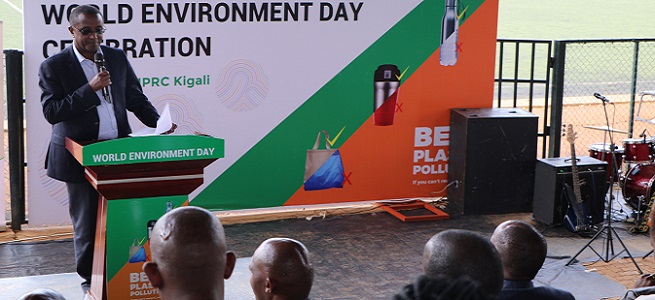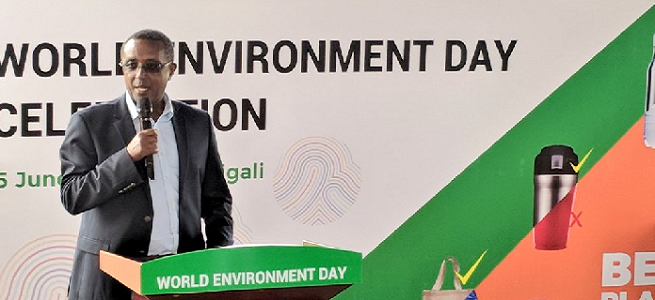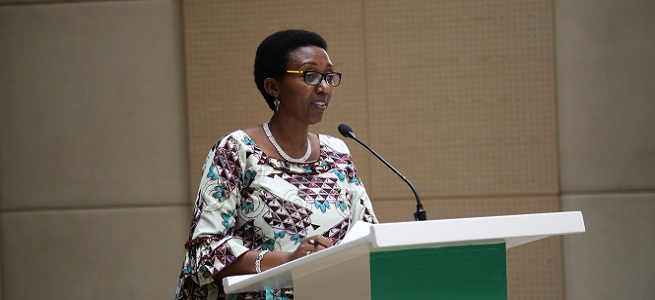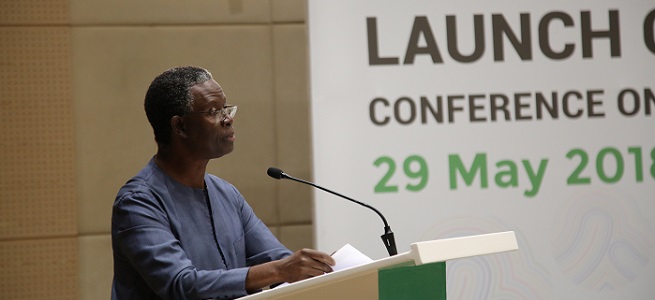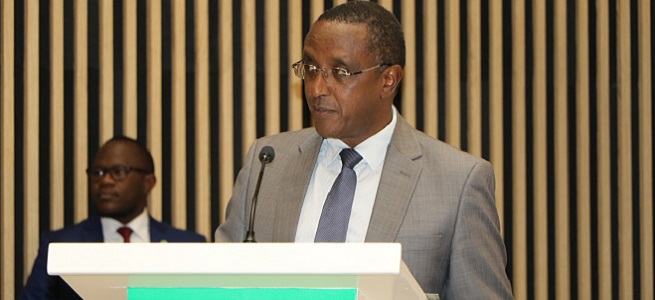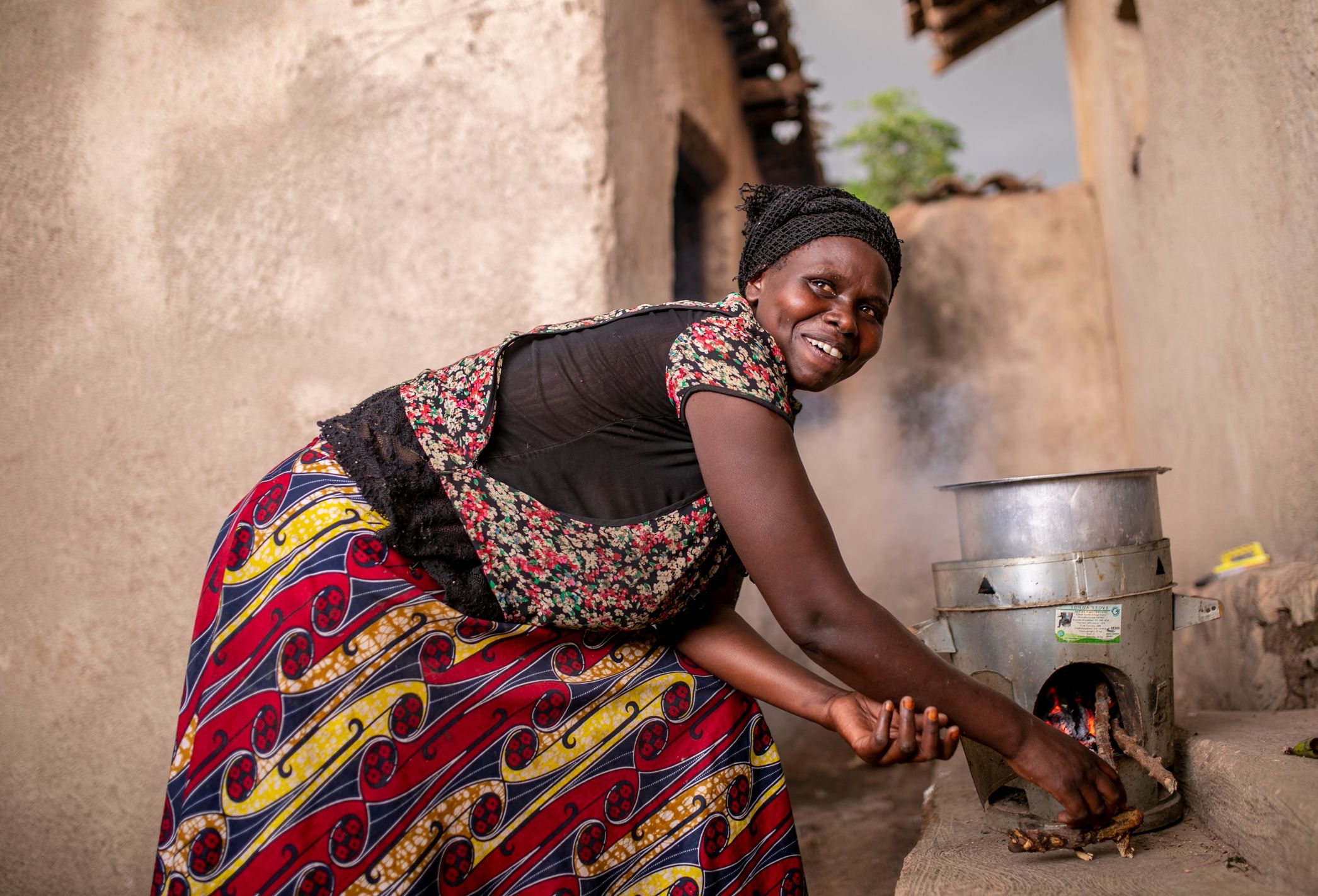
How the Green Amayaga Project is reducing firewood use in Rwanda’s Southern Province
In October 2020, the Rwanda Environment Management Authority in collaboration with the Rwanda Forestry Authority and the districts of Kamonyi, Nyanza, Ruhango and Gisagara, launched a ground-breaking six-year initiative to promote biodiversity, foster ecosystem services, increase agricultural productivity and reduce the vulnerability of people and ecosystems to the adverse effects of climate change in the Southern Province.
Since then, the Green Amayaga Project has run an awareness campaign on the use of safe, effective and clean cooking technologies. The goal is to promote energy efficiency by reducing the use of biomass for household cooking in the region. For many years, the widespread and intensive use of biomass energy in the Amayaga region has had a serious environmental impact, including deforestation.
To address the issue, improved cookstoves have been distributed to project beneficiaries in Kamonyi and Ruhango districts to both improve human health and contribute to mitigating deforestation and climate change. Since February 2021, about 21,000 households have been provided with improved cookstoves in the two districts.
Beneficiaries say that the cookstoves are not only helping them to use less firewood, but also to save money and time to do other income generating activities.
“The cookstoves from the Green Amayaga Project are more efficient than the traditional 3-stone stoves that we were used to. It was hard for us to get enough firewood to cook with because we don’t have many forests in this region. But the new Songa cookstove saves energy. With a single piece of firewood, you can cook your meal because once the cookstove is hot, you don’t need to add any more fuel. Your food is ready in just a few minutes,” said Fortunee Iyakaremye, a farmer from Kamonyi District.
The Songa cookstoves’ thermal efficiency is above 30. They also have fuel saving potential of more than 50% compared to traditional 3-stone stoves, which mitigates deforestation.
Before getting the improved cookstove, Fortunee struggled to concentrate on farming as she had to spend a lot of time collecting firewood. Her neighbours’ children would also often drop out of school to collect firewood, as their parents could not afford to buy firewood.
“Some children even dropped out of school,” she said. “Their parents had little time to earn a living, but now it is possible since we got these cookstoves. We believe that our children will now concentrate on school as they no longer need to spend a lot of time collecting firewood,” Iyakaremye added.
The Green Amayaga Project aims to increase forest cover in the region. In total, 1,000 hectares will be covered with productive forests. In addition, 25,000 hectares of agroforestation including fruit trees will be managed by the project.
According to Philbert Nkurunziza, the Green Amayaga Project Coordinator, reducing firewood use will address deforestation in the region.
“In the districts covered by the project, 60,000 improved cookstoves will be distributed over a period of six years. The cookstoves are expected to avoid about five million tons of greenhouse gases emissions over six years. Over the next 20 years, it is expected that the cookstoves will avoid approximately 15 million tonnes of greenhouse gas emissions,” he said.
Improved cookstoves offer considerable advantages for vulnerable households, such as reduced time and labour gathering firewood, as well as improved health outcomes by reducing exposure to household air pollution.
The Green Amayaga Project is being implemented by the Rwanda Environment Management Authority with funding from the Global Environment Facility (GEF) through the United Nations Development Programme (UNDP). The project intervention areas include Kamonyi, Nyanza, Ruhango and Gisagara districts in Rwanda’s Southern Province.
Learn more about the Green Amayaga Project here
Topics
More posts
Together, We can put an end to single-use plastics
The following was adapted from remarks given by the Minister of Environment, Vincent Biruta, at World Environment Day celebrations in Rwanda on 5 June…
Ijambo rya Ministiri w’Ibidukikije ku Munsi Mpuzamahanga w’Ibidukikije
IPRC Kigali | 5 Kamena 2018
Nyakubahwa Umuyobozi wungirije w’Umujyi wa Kigali ushinzwe ubukungu n'iterambere
Meya w’Akarere ka Kicukiro
…
Refusing single use plastics will make life and the planet better
Rwandans have been encouraged to avoid single-use plastics in order to reduce environmental pollution and save the planet from the dangers of plastic…
Remarks by the Director General of REMA at Launch of the National Environment Week
Hon. Minister of Environment
Hon. Minister of Trade & industries
One UN country Residence Coordinator
CEO PSF
Development Partners
Government…
Remarks by UN Resident Coordinator Dr Fode Ndiaye at Launch of National Environment Week
Nyakubahwa Minister of Environment, Dr. Vincent Biruta,
Honorable Ministers here present,
Senior Government Officials here present,
Honorable…
Remarks by Minister of Environment at Launch of National Environment Week
Fellow Ministers,
One UN Resident Coordinator,
Private Sector Federation Chairperson,
Distinguished guests,
Ladies and gentlemen
Mwaramutse!
It…
